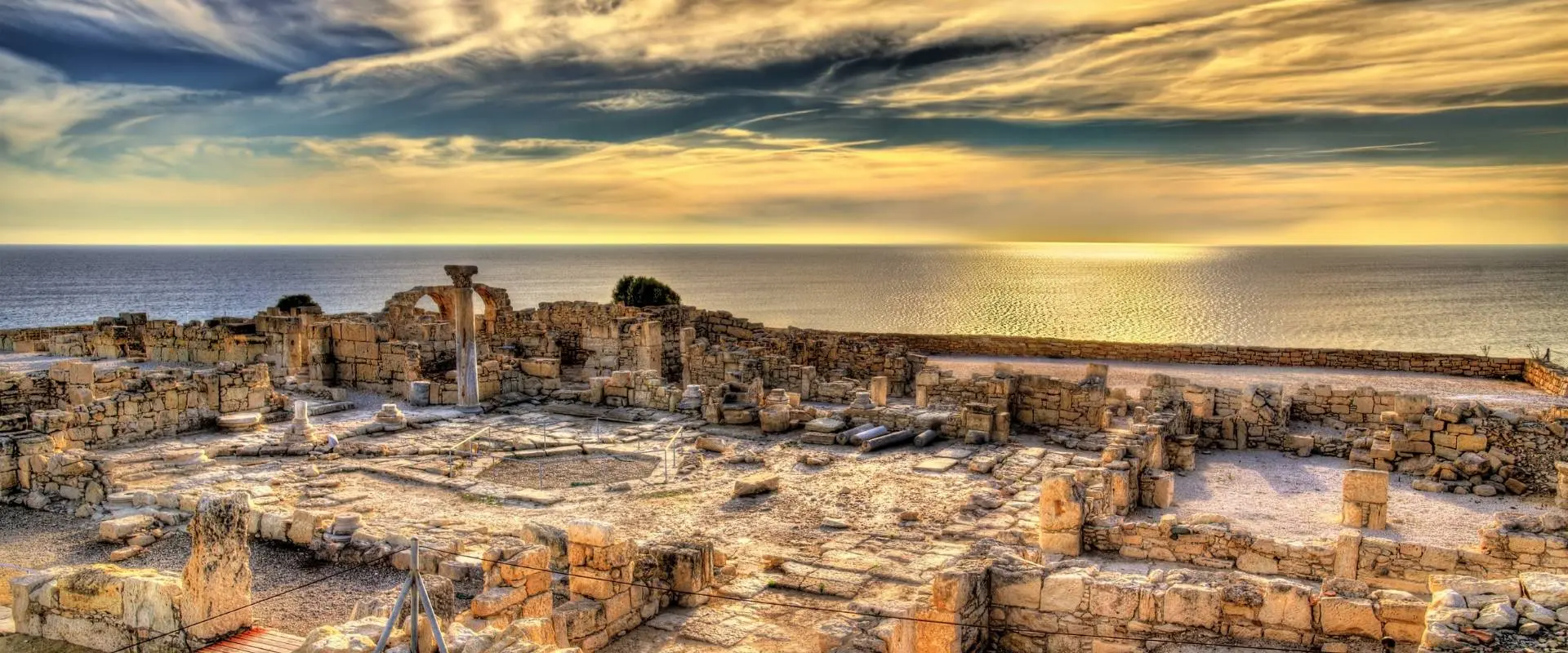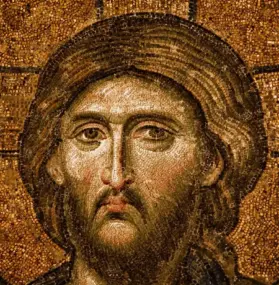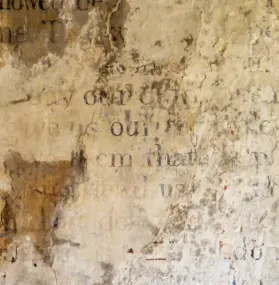- by Carrie Shaw
- on July 1, 2025
(Not a reader? Take a listen instead ⇓)
It can be tempting to view the early first-century church in rather glowing terms – a ‘golden age’ of church history when the believers were all-in, the church totally had it together, and the believers shared all things in common. I’ve heard Acts 2:42 touted as somewhat of a touchstone for church authenticity, with a revival of these (implied: blissful, albeit persecuted) glory days being the true mark of genuine Christian living.
And there’s no doubt that something miraculous did occur in those first heady days of the church. How 12 demoralised and terrified disciples were transformed into confident, articulate evangelists and leaders can only be a work of the supernatural; the intervention of the Spirit of God, combined with the sure knowledge of the truthfulness of the resurrection of Jesus Christ.
How thousands of ordinary men and women, living in the shadow of the greatest empire the world had ever seen, were not only receptive to the message about Jesus Christ, but convicted of their guilt and need for him, confessing their sins, turning to God, and being baptised in that same name is nothing short of incredible.
The world was turned upside down; reordered and rearranged, with Jesus proclaimed as king and thousands confessing that truth and bowing the knee, despite the threat of persecution, imprisonment, and even death. The church of Christ was born, against all odds, and grew and flourished, against all odds, and each day the Lord added to their fellowship those who were being saved.
But right from the beginning the church was flawed, as Jesus always knew she would be, and she has been flawed ever since; a living, breathing contradiction.
On one hand, she is otherworldly, empowered by the supernatural; transformative and inspiring, a living witness to the reality and power of resurrection. On the other hand, she is compromised, earthly, at times a feckless and faithless bride-to-be, who, forgetting her first love, seeks affection and affirmation from others.
At times, she has colluded with the powers of this world, exchanging her birthright for what amounts to a mess of pottage. And at other times she has stood resolute, a solitary light burning brightly in a very dark world.
As John Dickson puts it in his extraordinary and fascinating book, the church has been both bully and saint throughout her long history, and sometimes she has been both at the same time.
JOHN WRITES SOME LETTERS
The Christian message spread quickly throughout the empire and, by AD90 or thereabouts, at least seven churches of significance had been established in what is now western Turkey, the area known as Asia Minor. Only a generation removed from the greatest event the world had ever seen and yet even these churches already showed the extremes that would characterise the Christian identity for centuries afterwards.
John, known by historians as John the Elder, was exiled to the island of Patmos, not far from the coast of Asia Minor, for, in his own words, preaching the word of God and for his testimony about Jesus. It is while on this island that John sees a vision, a man standing in the middle of seven golden lampstands, with eyes like flames of fire and a voice like mighty oceans. He tells John that he is ‘the first and the last, the living one who holds the keys of death and the grave.’
“Write“, the man instructs John, “Write down what you have seen and what these things mean, the things that have already begun to happen and the things that will still happen.“
Further, John is to write seven letters, one for each church in Asia Minor, containing a message from the one who holds the seven stars in his right hand and who walks among the seven lampstands.
What follows is both insight and warning, commendation and condemnation. It will be a moment captured in time yet these observations about the church will remain true for all time, throughout all her years to come and amidst all her battles with culture and secular pressure.
1. To Ephesus, he writes:
It’s not enough just to hate that which is evil, nor only to suffer for it. You must also cling to that which is good. You must love God with every fibre of your being as you did at the first, and you must love one another. Love God, love people. It’s so easy to harden by degrees, to become so firm and intractable against evil, so diligent for truth that one can forget, amid all that fortitude, to love, to be empowered by the knowledge that it was love that freed you, love which is the first and greatest command and that it is love that will last forever. Without love, you are nothing.
Repent and turn again, do the works that you did from the beginning, whose motivating force was love, not hate.
2. To Smyrna, he writes:
Don’t be afraid. Remember when I was still with you I told you that in this world you would have trouble? The devil roams around like a roaring lion, seeking to devour and destroy. But I have overcome this world, I have defeated the prince of darkness, and so will you, if you remain faithful. Even if you face death in this world, whoever is faithful will be victorious and will not be harmed by the second death. I was dead, but now I’m alive and I live forevermore. Because of me, you’ll live too.
You may think you are poor and that you suffer, and indeed, in this world, you may endure terrible things for my name’s sake. But I want to remind you of the riches you are inheritors of, in my name, and by the shedding of my own blood. Look to me – I am holding a crown of life, reserved for you from my Father. Courage, dear hearts.
3. To Pergamum, he writes:
Your loyalty is astounding. You have refused to deny me, despite the threat of exile or execution, even in the face of martyrdom, and all the while living under the shadow of the empire. Your hearts have remained constant, even as you watched your very own bishop, my faithful witness, burn like a candle in Satan’s city.
And yet you compromise on truth. You tolerate among you those whose teachings are leading your people into religious and moral sin. While love is everything, love without truth is nothing at all.
I am the word of truth, the two-edged sword, piercing through soul and spirit, joints and marrow, and discerning the thoughts and intentions of the heart. Repent of your sin, or I will come against you suddenly to fight against those deceivers and liars.
4. To Thyatira, he writes:
I know you and I see myself in you. Your love, your faith, your patient endurance, your service to one another, your vision and passion to keep growing in these things, and your desire to hold tightly to that precious hope that you have received. You love me and I love you; you are my people.
But why are you allowing this prophet, who is no prophet at all, to teach and preach among you, claiming that sexual immorality and idol worship are acceptable when offered in my service? These are the dark and evil ways of pagan gods, of those living in darkness. You have been called out of darkness, into my glorious light. Let there be no sexual immorality, impurity or greed among you. Such sins have no place among God’s people. I have given your false prophet time to repent and she refuses; I will no longer overlook her sin, nor those who collaborate with her. I will give to each of you whatever you deserve.
But to you who have not followed this false teaching, I ask nothing more from you than that you hold fast in faithfulness. I promise you, I am coming soon.
5. To Sardis, he writes:
Wake up, wake up! Your lamps are growing dim and your oil is running out.
You only have a little remaining and even now that light grows weak and faint, and is in danger of being extinguished. You think that you are healthy, and whole, and flourishing, yet your garments are stained with evil and you are little more than a corpse. Faith without deeds is dead and you have separated the body from the very source of life which would empower it. Repent and turn to me again – you proclaim yourselves unworthy of the name to which you hold.
Yet not all of you have been faithless. You are mine, faithful friends, and you will walk with me in white, for you have shown yourselves worthy.
6. To Philadelphia, he writes:
You are the ones I love. You only have a little strength but you used all of it to obey my word and did not deny me. I have confessed you before my Father and I tell you again, whoever loses their life for my sake will find it. I have taken you for my very own and I will protect you from the great time of trouble that is soon to come upon the world. There is laid up for you a crown of life; continue to hold fast so that no one will take away your crown.
What I open, no one can close, and what I close, no one can open. Continue to put your confidence in me and you’ll not be disappointed.
7. To Laodicea, he writes:
Your indifference breaks my heart. You have so much possibility, so much you are capable of. I have placed eternity in your hearts, and yet you settle for mediocre. You are neither hot nor cold. I wish you would choose one or the other. Any decision is better than no decision at all.
You think you are rich and yet you flatter yourselves. You are poor; poor and naked and blind, desperately in need of ointment for your blindness and clothing for your nakedness. Your religiosity reminds me of the days long since past, of festivals and assemblies that were a stench to my nostrils. I do not accept them. I will have no regard for them. I despise this kind of religion.
Because you are merely lukewarm; fence-sitters, peacekeepers, colluders, I would spit you out of my mouth. Yet hear me now: I disciple all those I love and my criticism is proof of my love for you. So be diligent. Turn again from your indifference and return to me, your first love.
Lessons From The Seven Churches
Jesus is the light of the world and his kingdom, a kingdom of light.
Confessing that Jesus is the Christ joins us to that kingdom of light (1 John 18:22). When we join that kingdom, we have fellowship with the Father and with His Son (1 John 1:7). Because of this, we also have fellowship with others who are walking in that light that Jesus shines. Together, we have fellowship in his name.
These ‘people of the kingdom’ are Christians – Jesus’ disciples – bound together by the blood of the king. They are his church, both revealed and still hidden, and only truly fully known to the king.
John’s Book of Revelation describes them as scattered lampstands of light. Then, they were found throughout Asia Minor but now, these lampstands can be found all over the world, shining the light of Jesus and his glory throughout the earth. He is the source of light by which they shine and his love is their defining mark. But now, as then, they are imperfect, flawed, both compelling and contradictory.
What do we learn from these seven messages to seven churches in the first century?
We learn that both faithfulness and faithlessness can exist within the same church. We learn that neighbouring churches can differ in their fervour and resolve. We learn that no church has ever had it completely sorted and that no church was ever entirely awful. Every church has areas of strength but also areas that need improvement and renovation.
We learn that Jesus walked among them. He was their judge, he was their king, he was their first love and it was to him that they answered. It is to him, still, that the church answers, to him she owes her allegiance, he is the lifeblood and heartbeat of her identity.
And we learn that the Spirit moves still, blowing like the wind, hovering like a bird, illuminating the way like a flame in the darkness, imploring those who would have ears to hear to listen to His declaration:
Those who are victorious, those who overcome will shine like the stars in heaven, crowned with life and never to be harmed by the second death. Their names will be written in the Book of Life and a new name will be given to them, engraved on stones as white as snow. They will have authority and power, ruling over the nations with the same authority as God Himself, and to them will be given the bright and morning star for an everlasting inheritance. They will eat from the fruit of the tree of life, taste of the manna hidden away in heaven, and they will become pillars in the great temple of the God of all the earth. They will sit on the throne with the Alpha and Omega Himself, and proclaim: “The world has now become the Kingdom of our Lord and of His Christ, and He will reign forever and ever. Amen”.
Love Well.
Have Courage.
Seek Truth.
Keep The Faith.
Shine Brightly.
Trust Always.
Be Intentional.







I had to do a bit of scrolling through Facebook to find this link to your blog. I am not a very accomplished sleeper— never have been so I am glad when I can be directed to an interesting teaching such as this. Thank you for sharing what God placed on your heart.
Thank you so much for your lovely feedback. I’m glad you enjoyed the article 🙂